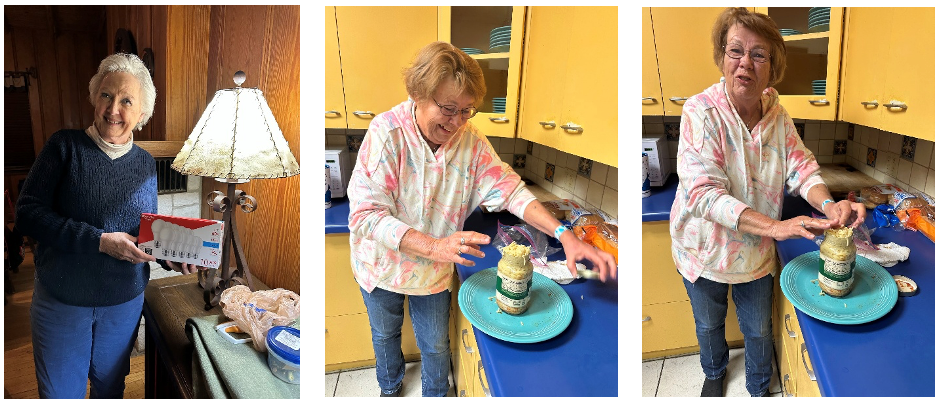Recovering Oklahomans After Disaster (with Iowans)
- Libby Janes

- Apr 15, 2024
- 3 min read
This past March, I spent a week in Oklahoma with a group of Presbyterians from Iowa. Together we worked on storm damaged homes through a nonprofit organization known as ROAD: Recovering Oklahomans After Disaster (https://disasterroad.org/). Before I put ROAD’s information on our Synod materials as a disaster recovery work partner, I wanted to experience for myself how they work with volunteer groups. Rev. Tim Maxa, who pastors Presbyterian churches in Lenox and Sharpsburg, Iowa was kind enough to allow me to join his team for their annual Spring Mission Trip.

While I initially signed on for this trip to learn more about ROAD, the blessing in disguise was how much I learned from Pastor Tim and his 30+ years of experience organizing annual mission trips with youth and adults. The group of 20 on this particular trip, come from 8 partnering churches in Iowa, with participants whose ages ranged from 14 to 75. You can hear more directly from Tim on our Sunspots episode (https://www.synodsun.org/sunspots).
Tim’s encouragement to churches who are considering organizing a mission trip, especially to small churches is this: “There’s nothing that a large church does that a small church can’t do as well.”
For me, I have always been drawn to mission, the idea that our own hands, feet and presence can be a transformative agent in healing a broken world. Many of those I met while serving in Oklahoma shared with me how much this one week meant to them. It was an opportunity to put their faith in action. To get away from the grief and burdens waiting for them back home. To get a different perspective of the world and meet new people. To use their gifts and skills in a tangible way, cultivating hope and relief in themselves and in others.
In total, this group from Iowa worked on four homes in Okmulgee and Muskogee, Oklahoma. Many of the families have remained living in these storm damaged homes over the past two years. When rising flood waters inundated his home, Phil’s homeowners insurance did not cover any of the damages. When he wasn’t at work, he, his wife and family, stripped their home down to the studs and have been rebuilding it piece by piece since 2022.
As our group was reinstalling Phil’s front door on our final day working on his home, Phil, who just retired from his job at the local papermill, told us that this was the first time he could finally see the light at the end of a dark tunnel. Through the outpouring of support and compassion from family, neighbors, and complete strangers, Phil’s hope was restored.

There are a variety of reasons people are unable to rebuild and recover after a disaster impacts their lives. As Tim and I discussed on the podcast, mission trips offer an opportunity to practice non-judgmental care and compassion in real time. We never know the full extent of someone else’s circumstances, but our role and mission is to share the love of Christ to those we meet.
Currently, I along with Presbyterian Disaster Assistance’s (PDA) National Response Team volunteers are reading the book, Practicing Compassion by Frank Rogers, Jr. Rogers writes, “Jesus compared God’s compassion to the sun that shines on the just and unjust alike. He summarized the essence of his spiritual path: Be all-inclusively compassionate, just as your Father in heaven is all-inclusively compassionate.”
If you as an individual or your members of congregation feel moved to serve with compassion, there are people and resources to support you every step of the way. You can reach out to me directly (kathy.leecornell@synodsun.org). PDA has created an easy-to-use and comprehensive Volunteer Work Trip Planning Guide. Download this guide, by clicking here. And as you heard on the podcast, you’re always welcome to come along with Tim and his mission team next Spring.
Volunteer in Sites across the Synod of the Sun
You can serve directly in disaster impacted communities across the Synod of the Sun. Click the links below to connect directly with each of our volunteer host sites or work partners actively supporting long term recovery efforts in Arkansas, Louisiana, Oklahoma and Texas:





Comments